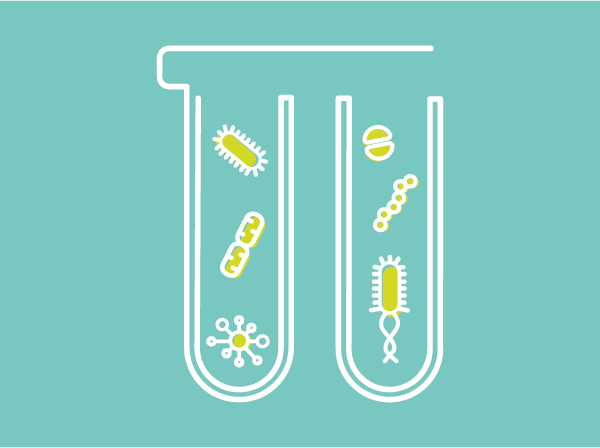OpenBiome presented data on safety and efficacy of fecal transplants and other new research at ACG & ID Week
Press Release
Share
The non-profit stool bank shared data from a 2,050 patient cohort of fecal transplant recipients and other research at the American College of Gastroenterology and the Infectious Disease Society of America annual meetings.
SOMERVILLE, Mass —OpenBiome, a public stool bank, presented new research on fecal microbiota transplantation (FMT) at the 2016 American College of Gastroenterology Annual Scientific Meeting and Infectious Diseases Week 2016. Among ten abstracts accepted to the two conferences were three on the safety and efficacy of FMT in the largest adult and pediatric Clostridium difficile (CDI) patient cohorts to date. In both populations, FMT continues to produce high cure rates and promising safety results.
Three of OpenBiome’s ACG abstracts were chosen as Posters of Distinction. Among them was OpenBiome Clinical Program Director Majdi Osman’s (MD, MPH) study of FMT in pediatric CDI, which showed a cure rate of 85.5% and no reported serious adverse events among 69 patients who received FMT. OpenBiome’s other Posters of Distinction reflected its success in increasing access to FMT—96.7% of the US population now lives within a 2-hour drive of a hospital or clinic that offers FMT—and provided valuable data about the safety of FMT. At a hospital with an internal stool-banking program, 31 patients received FMT from a donor who later developed Crohn’s disease, but none of the patients have subsequently developed inflammatory bowel disease themselves. Three additional posters showed that stool donors had a higher-than-average fiber intake relative to the average American, emphasized the importance of testing for toxin status in patients prior to initiating antibiotics, and highlighted the importance of patient education in preventing recurrence.
At ID Week, OpenBiome presented data from the largest FMT cohort reported to date. In an investigation of the safety and efficacy of FMT in 2,050 CDI patients, 84% of patients achieved clinical cure after FMT with no adverse events attributable to treatment. Another study—the largest yet to assess clinical efficacy for FMT in CDI by donor—found that there is no significant difference in cure rate from one donor to the next, reinforcing the utility and effectiveness of the stool bank model. An analysis of OpenBiome’s donor population also identified the most common reasons for donor exclusion, highlighting areas of particular importance for donor screening. OpenBiome also explored a new frontier of FMT research by presenting results which suggest that FMT and related microbial therapies may be effective in preventing infection and transmission of Vancomycin-resistant enterococcus, a dangerous multi-drug resistant bacteria, in high-risk settings.
ACG was held from October 14-19 in Las Vegas, NV, and ID Week was held from October 26-30 in New Orleans, LA. More information about OpenBiome, including its mission, patient stories, and Quality & Safety Assurance program, is available at www.openbiome.org.
Full list of OpenBiome and OpenBiome affiliate posters, ACG & IDWeek 2016
-
Empiric treatment of suspected recurrent Clostridium difficile infection (rCDI) with vancomycin may interfere with evaluation for fecal microbiota transplantation (Allegretti et al) [view]
-
Clearance of Vancomycin-Resistant Enterococcus (VRE) colonization with fecal microbiota transplantation among patients with recurrent Clostridium difficile infection (Eysenbach et al) [view]
-
Can You Cause Inflammatory Bowel Disease with Fecal Microbiota Transplantation? A 31-Patient Case Series of Fecal Transplantation Using Stool from a Donor Who Later Developed Crohn’s Disease* (Fischer et al) [NB: the donor was not a donor for OpenBiome] [view]
-
The impact of stool banks on access to fecal microbiota transplantation for recurrent Clostridium difficile infection in the United States: A geospatial analysis* (Kassam et al) [view]
-
Nutritional composition of stool donor’s diet relative to that of the U.S. population: Results from 44 donors form an international stool bank for fecal microbiota transplantation (O’Brien et al) [view]
-
Safety and efficacy of fecal microbiota transplantation for recurrent Clostridium difficile infection from an international public stool bank: Results from a 2050-patient multi-center cohort (Osman et al) [view]
-
The great mimic: Food-borne illness masquerading as an infectious adverse event following fecal microbiota transplantation (Osman et al) [view]
-
Donor efficacy in fecal microbiota transplantation (FMT) for recurrent Clostridium difficile: Evidence from a 1,999 patient cohort (Osman et al) [view]
-
Clinical effectiveness and safety of fecal microbiota transplantation in children for Clostridium difficile infection: Results from 9 pediatric centers in the United States* (Osman et al) [view]
-
Characterizing patients who fail fecal microbiota transplantation for Clostridium difficile infection (CDI): Results from a 135 patient, multi-center non-responder cohort (Razik et al) [view]
* = posters of distinction
